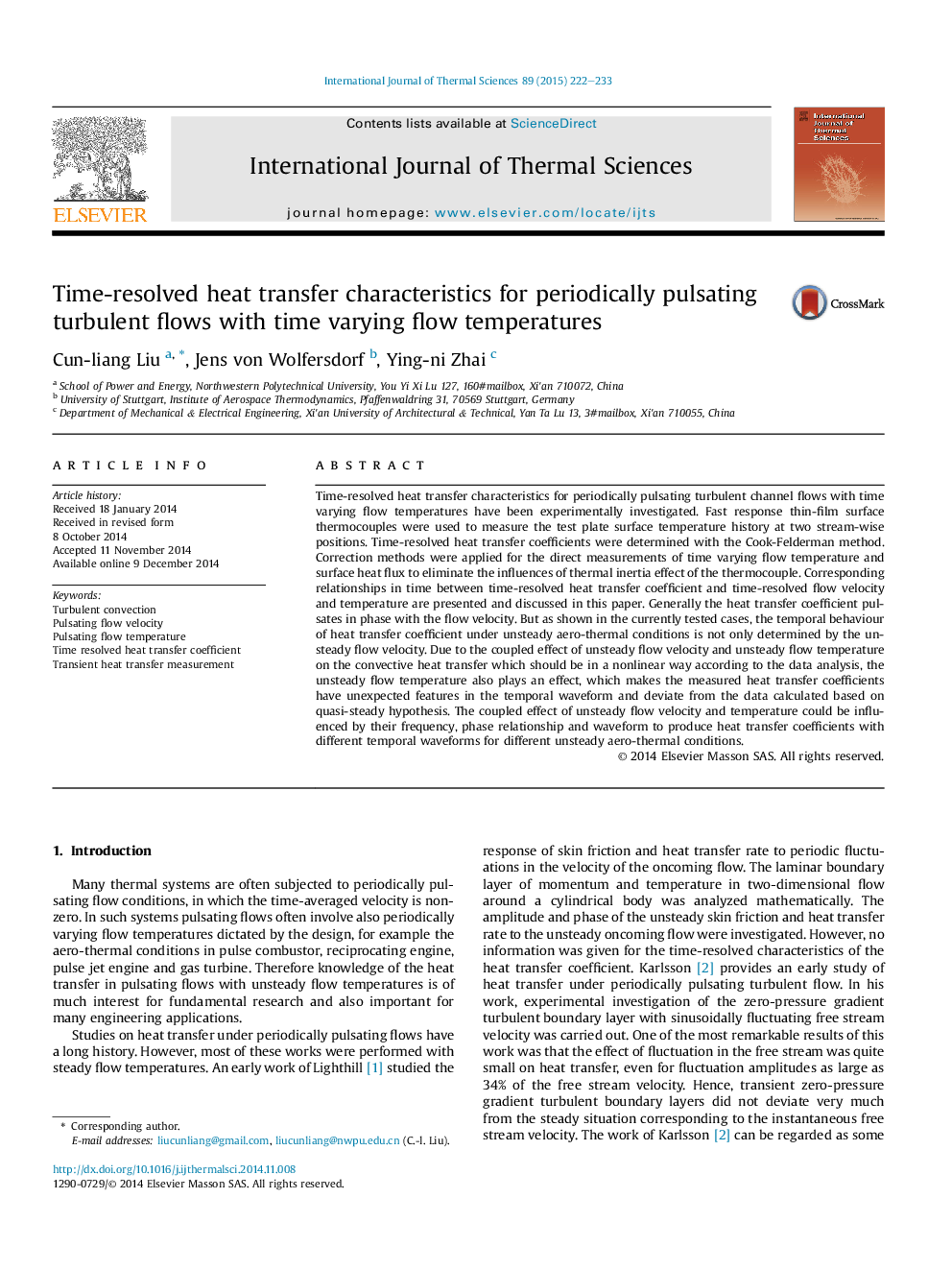| Article ID | Journal | Published Year | Pages | File Type |
|---|---|---|---|---|
| 668205 | International Journal of Thermal Sciences | 2015 | 12 Pages |
Abstract
Time-resolved heat transfer characteristics for periodically pulsating turbulent channel flows with time varying flow temperatures have been experimentally investigated. Fast response thin-film surface thermocouples were used to measure the test plate surface temperature history at two stream-wise positions. Time-resolved heat transfer coefficients were determined with the Cook-Felderman method. Correction methods were applied for the direct measurements of time varying flow temperature and surface heat flux to eliminate the influences of thermal inertia effect of the thermocouple. Corresponding relationships in time between time-resolved heat transfer coefficient and time-resolved flow velocity and temperature are presented and discussed in this paper. Generally the heat transfer coefficient pulsates in phase with the flow velocity. But as shown in the currently tested cases, the temporal behaviour of heat transfer coefficient under unsteady aero-thermal conditions is not only determined by the unsteady flow velocity. Due to the coupled effect of unsteady flow velocity and unsteady flow temperature on the convective heat transfer which should be in a nonlinear way according to the data analysis, the unsteady flow temperature also plays an effect, which makes the measured heat transfer coefficients have unexpected features in the temporal waveform and deviate from the data calculated based on quasi-steady hypothesis. The coupled effect of unsteady flow velocity and temperature could be influenced by their frequency, phase relationship and waveform to produce heat transfer coefficients with different temporal waveforms for different unsteady aero-thermal conditions.
Related Topics
Physical Sciences and Engineering
Chemical Engineering
Fluid Flow and Transfer Processes
Authors
Cun-liang Liu, Jens von Wolfersdorf, Ying-ni Zhai,
